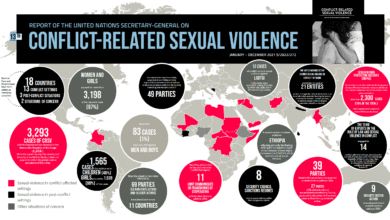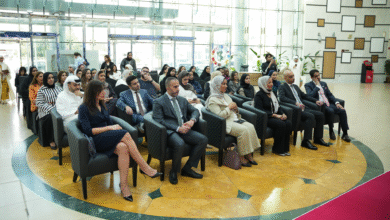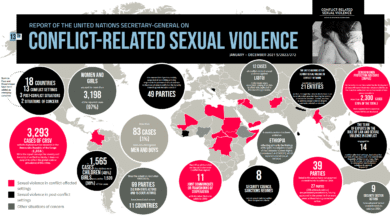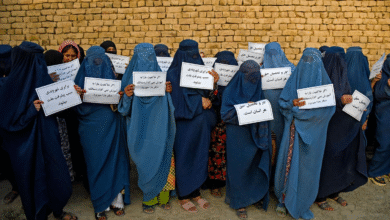Menstruation in Gaza: Women Face Urgent Health Crisis
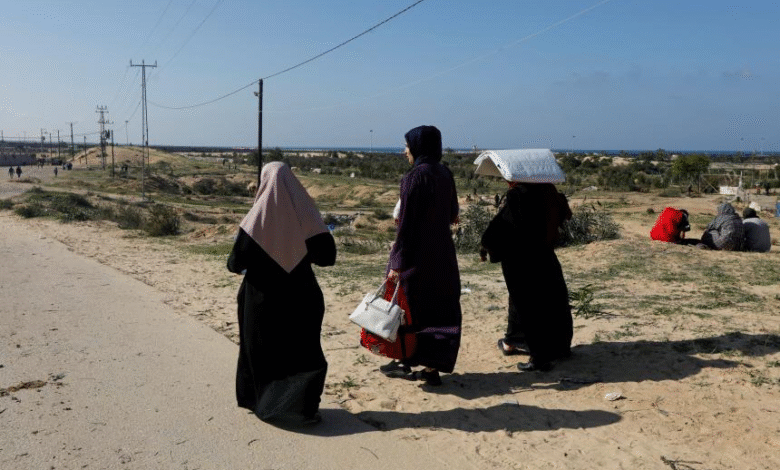
Menstruation in Gaza has transformed from a natural biological process into a dire challenge for countless women and girls living in crisis conditions. As the Gaza humanitarian crisis unfolds, approximately 700,000 menstruators face insurmountable obstacles, including severe restrictions on menstrual hygiene products and clean water. The impact of period poverty is exacerbated by the ongoing conflict, forcing many to resort to makeshift solutions that threaten their health and dignity. Without adequate support from organizations like UNFPA, the basic needs for women’s health in Gaza remain unmet. Ensuring menstrual hygiene in such dire circumstances is not just a matter of health; it’s a vital component of preserving dignity and humanity amid ongoing hardships.
In the context of the ongoing conflict, the realities of menstruation in Gaza paint a grim picture of women’s health challenges faced by the female population. As multiple generations grapple with the ramifications of the Gaza humanitarian crisis, issues surrounding menstrual health have become pressing and urgent. The lack of essential hygiene supplies coupled with water shortages has pushed many women and girls deeper into a state of vulnerability and isolation during their menstrual cycles. The symptoms of period poverty are not just physical; they also impact mental well-being, as the stigma and anxiety surrounding menstruation become amplifiers of their struggle. It is crucial to understand the humanitarian needs of menstruating individuals in conflict zones to appreciate the broader implications of women’s health in these environments.
Menstruation in Gaza: A Health Crisis
In the midst of the ongoing Gaza humanitarian crisis, menstruation has transformed into a severe health dilemma for women and girls. With the destruction of essential infrastructure, the provision of menstrual hygiene products has diminished significantly. Women are unable to access basic necessities like sanitary pads, clean water, and soap, which are crucial for maintaining menstrual hygiene. The United Nations Population Fund (UNFPA) reported that nearly 700,000 women are among the population facing extreme challenges related to menstruation amid vast insecurity and overwhelming stress. The lack of sanitary supplies not only impacts physical health but also threatens the overall well-being and dignity of these women.
Many girls and women report feelings of anxiety and shame due to their inability to manage menstruation effectively. For many, the inadequacy of personal hygiene products forces them to resort to dangerous alternatives, such as old rags or improvised materials, which can lead to infections and further health complications. The psychological ramifications are profound, as societal taboos surrounding menstruation only compound their distress. Each month, when their period arrives, many express a desire to escape the reality of being a woman in such dire circumstances. This highlights the urgent need for humanitarian interventions focusing on women’s health in Gaza.
The Reality of Period Poverty in Crisis Zones
Period poverty is increasingly recognized as an acute issue in crisis zones like Gaza. This phenomenon goes beyond the lack of access to menstrual products; it encompasses the social stigma attached to menstruation and the bodily autonomy lost during emergencies. For women and girls, not having adequate menstrual supplies can be distressing and dangerous, leading to exclusion from daily activities, education, and work, further entrenching their societal marginalization. Understanding that menstruation is a natural biological process, organizations are now pushing for addressing period poverty as part of broader public health and human rights strategies.
The UNFPA and other NGOs are working rigorously to combat this reality by providing hygiene kits that include menstrual products to ensure women can manage their menstruation with dignity. However, the distribution of these necessary supplies remains a challenge in Gaza due to ongoing conflict and logistical barriers. Women not only need products but also education on menstrual health to reclaim agency over their bodies. The stigma surrounding menstruation must be eradicated, allowing women and girls to live free from fear or shame, thereby improving their overall health and quality of life.
Impact of the Humanitarian Crisis on Women’s Health in Gaza
The humanitarian crisis in Gaza has precipitated a public health emergency affecting women’s health in multifaceted ways. The ongoing conflict has impeded access to primary health services, including those related to menstrual health. With health facilities overwhelmed and essential supplies dwindling, women find it increasingly difficult to access safe and clean environments necessary for proper menstrual care. The exacerbation of conditions by war leads to heightened risks of reproductive health issues, emotional stress, and sexual violence, making it crucial to address these factors in humanitarian responses.
Additionally, the psychological toll on women in Gaza can be immense as they navigate the challenges of menstruation amid displacement and fear. Many women express feelings of helplessness and frustration, as their bodies become sources of anxiety in a context where basic human dignity is under constant threat. To ensure comprehensive health programming in Gaza, humanitarian agencies must prioritize women’s health, integrating menstrual health management into emergency responses alongside basic health and nutrition services.
UNFPA Support: Addressing Menstrual Hygiene Needs
The United Nations Population Fund (UNFPA) has emerged as a critical player in addressing the menstrual hygiene needs of women and girls in Gaza. Despite the overwhelming challenges posed by the humanitarian crisis, UNFPA has made efforts to deliver essential menstrual health products and education to the affected population. Their initiatives have seen the distribution of hygiene kits containing menstrual pads and reproductive health information, helping to alleviate some of the pressures faced by women who are struggling in difficult living conditions. UNFPA’s commitment emphasizes not only the urgency of the situation but also the inherent right of women to manage their menstruation with dignity.
However, logistical obstacles remain significant. The ongoing blockade and severe shortages of sanitary products limit UNFPA’s ability to fulfill the pressing needs of nearly 700,000 women and girls. Despite recent aid efforts, the number of supplies distributed is not nearly sufficient to meet the demand, leaving many women without adequate menstrual hygiene resources. The international community’s support remains crucial in ensuring that all women in Gaza can access necessary health services and products, which are vital for their dignity and health.
Cultural Stigma and its Effect on Menstrual Health
In Gaza, cultural stigma surrounding menstruation exacerbates the struggle for women and girls to manage their periods. The deep-rooted beliefs and taboos associated with periods create an environment where discussing menstrual health openly is nearly impossible. This silence can lead to misinformation and hinder women’s ability to seek help or access necessary products during menstruation. Many women report feeling embarrassed and isolated, which only compounds the physical and psychological struggles faced during their menstrual cycles.
Addressing cultural stigma is vital to improving menstrual health outcomes. Education campaigns that promote awareness and understanding of menstruation are essential. By fostering an open dialogue about menstruation and its associated challenges, these initiatives can help dismantle stigma and empower women in Gaza to take control of their menstrual health. Practical support, such as workshops and community programs, can equip women with the knowledge they need to navigate their menstrual hygiene confidently, enhancing their health and dignity.
Women’s Voices Amid Crisis: Stories of Resilience
Among the challenges posed by the Gaza humanitarian crisis, the voices of women resonate with resilience and determination. Many women share their poignant stories of managing menstruation under harrowing circumstances, showcasing their strength in the face of adversity. These narratives highlight not only their struggles but also their ability to adapt, seeking solutions even when faced with unimaginable difficulties. Their experiences underscore the urgent need for support and solidarity from the international community, allowing their stories to reclaim agency and dignity.
As women express their needs for menstrual hygiene products and sanitation, they also call for recognition of their rights in the midst of the crisis. The stories shining a light on their resilience serve as powerful reminders that women are not just victims of war but active participants in their own narrative of survival. UN agencies and corresponding organizations must amplify these voices and ensure that the needs of women in Gaza are central to humanitarian responses, thereby facilitating overall community healing and progress.
The Importance of Privacy and Safety During Menstruation
In a crisis like Gaza, the importance of privacy and safety during menstruation cannot be understated. With many women living in overcrowded shelters and displacement camps, finding a private space to manage their menstruation becomes daunting, further contributing to feelings of shame and anxiety. The lack of privacy in these environments not only hinders women’s ability to maintain proper hygiene but also exposes them to risks of harassment and violence, accentuating the need for safe spaces.
Addressing these challenges goes beyond providing menstrual products; it involves creating safe environments for women and girls. Humanitarian organizations must prioritize the establishment of private facilities where women can manage their menstruation without fear or shame. Additionally, raising awareness among community leaders and stakeholders about the importance of safe spaces for women can foster an environment where their rights are respected, enabling them to manage their health with dignity, regardless of their circumstances.
Long-term Solutions for Menstrual Health in Gaza
As the humanitarian crisis in Gaza unfolds, there is an urgent need for long-term solutions to address menstrual health issues faced by women and girls. Sustainable access to menstrual hygiene products should become an integral part of humanitarian planning and recovery efforts. This includes not just the provision of sanitary products, but also the establishment of infrastructures, such as schools and health care facilities, that are equipped to support women’s health needs during emergencies and beyond.
Additionally, long-term educational initiatives aimed at dismantling stigma and promoting menstrual health must be incorporated into broader community health programs. By empowering women through education and sustainable health practices, communities can promote resilience and better health outcomes. This holistic approach can ensure that women and girls in Gaza not only survive the current crisis but also thrive in the future, reclaiming their health and dignity.
Call to Action: Supporting Women’s Health in Humanitarian Crises
The calls for support for women’s health in humanitarian crises like that in Gaza must echo louder in the international arena. Addressing women’s health, particularly menstrual hygiene, should be positioned as a priority in humanitarian responses. It requires collaborative efforts between governments, NGOs, and local communities to ensure that women’s health needs are met effectively amidst conflict. Advocacy at all levels must push for the rights of women to have access to safe menstrual health products and education.
International funding and support are crucial in providing the necessary resources and infrastructure that women need to manage menstruation safely and comfortably. By ensuring that women are included in humanitarian efforts and that their needs are acknowledged, we can contribute to a more equitable and humane recovery process. The necessity for urgent action is evident as women in Gaza continue to bear the brunt of a compounded crisis, emphasizing the importance of our commitment to supporting their health and dignity.
Frequently Asked Questions
What are the challenges of managing menstruation in Gaza?
Managing menstruation in Gaza presents severe challenges due to the ongoing humanitarian crisis. Women and girls frequently face shortages of menstrual products, clean water, and sanitation facilities, leading to a lack of menstrual hygiene. The destroyed infrastructure and crowded shelters exacerbate the struggle, with many resorting to unsafe makeshift methods that pose health risks.
How does the Gaza humanitarian crisis affect women’s health?
The Gaza humanitarian crisis significantly impacts women’s health, particularly concerning menstrual hygiene. The scarcity of sanitary products and proper sanitation facilities leads to heightened anxiety, isolation, and psychological distress among menstruating women. The situation threatens their reproductive health and dignity, as basic needs for menstrual management are unmet.
What is period poverty and how does it manifest in Gaza?
Period poverty in Gaza is a critical issue where many women lack access to necessary menstrual hygiene products, largely due to economic and logistical barriers influenced by the ongoing crisis. Many women resort to using unsuitable materials as substitutes for sanitary pads, leading to health complications and compromising their overall wellbeing.
What role does UNFPA play in supporting menstrual hygiene in Gaza?
UNFPA plays a vital role in addressing menstrual hygiene needs in Gaza, especially amid the humanitarian crisis. The organization provides essential menstrual products and health supplies to women and girls, integrating menstrual health into broader humanitarian efforts. Their support aims to restore dignity and ensure women can manage their periods safely.
What can be done to improve menstrual hygiene for women in Gaza?
Improving menstrual hygiene for women in Gaza requires a multifaceted approach, including the reinstatement of proper supply channels for menstrual products, investment in clean water and sanitation infrastructure, and increased awareness of menstrual health. Support from humanitarian organizations like UNFPA is crucial to meet these needs and ensure women’s health and dignity.
How does displacement affect menstrual hygiene practices in Gaza?
Displacement severely affects menstrual hygiene practices in Gaza, as many women find themselves in overcrowded shelters with no privacy or access to sanitary supplies. The psychological impact is profound, with many girls experiencing shame and anxiety due to inadequate menstrual management conditions during displacement.
What are the implications of inadequate menstrual hygiene on women’s health in Gaza?
Inadequate menstrual hygiene in Gaza has dire implications for women’s health, leading to increased risks of infections, reproductive health issues, and heightened mental health challenges. The absence of basic menstrual hygiene products turns a natural biological process into a distressing experience, severely undermining women’s dignity and wellbeing.
| Key Issues | Details |
|---|---|
| Challenges Faced | Women and girls in Gaza struggle with inadequate supplies for menstrual hygiene, facing issues of displacement, lack of privacy, and poor sanitary conditions. |
| Health Risks | Improvised solutions often lead to infections and long-term reproductive health issues due to the use of unsanitary materials. |
| Human Rights Perspective | Access to menstrual products is considered a human rights issue, with agencies like UNFPA advocating for dignity in menstrual health. |
| Aid Challenges | Ongoing blockades have severely limited the availability of hygiene products, contributing to an acute shortage. |
| Psychological Impact | The stigma around menstruation and the inability to manage it properly lead to feelings of isolation and shame among women and girls. |
| UNFPA’s Efforts | UNFPA has provided menstrual supplies to hundreds of thousands, yet ongoing challenges jeopardize these efforts. |
Summary
Menstruation in Gaza represents a significant human rights issue as women and girls navigate through dire humanitarian conditions. With inadequate access to sanitary products and suffering from severe infrastructural deficiencies, maintaining menstrual hygiene becomes a daunting challenge. The psychological and physical toll of these hardships is compounded by community stigma, often stripping affected individuals of their dignity. Despite the efforts from organizations like UNFPA to provide necessary supplies, the ongoing crises hinder meaningful progress, highlighting the urgent need for global awareness and support to address menstruation-related challenges in crisis zones.

